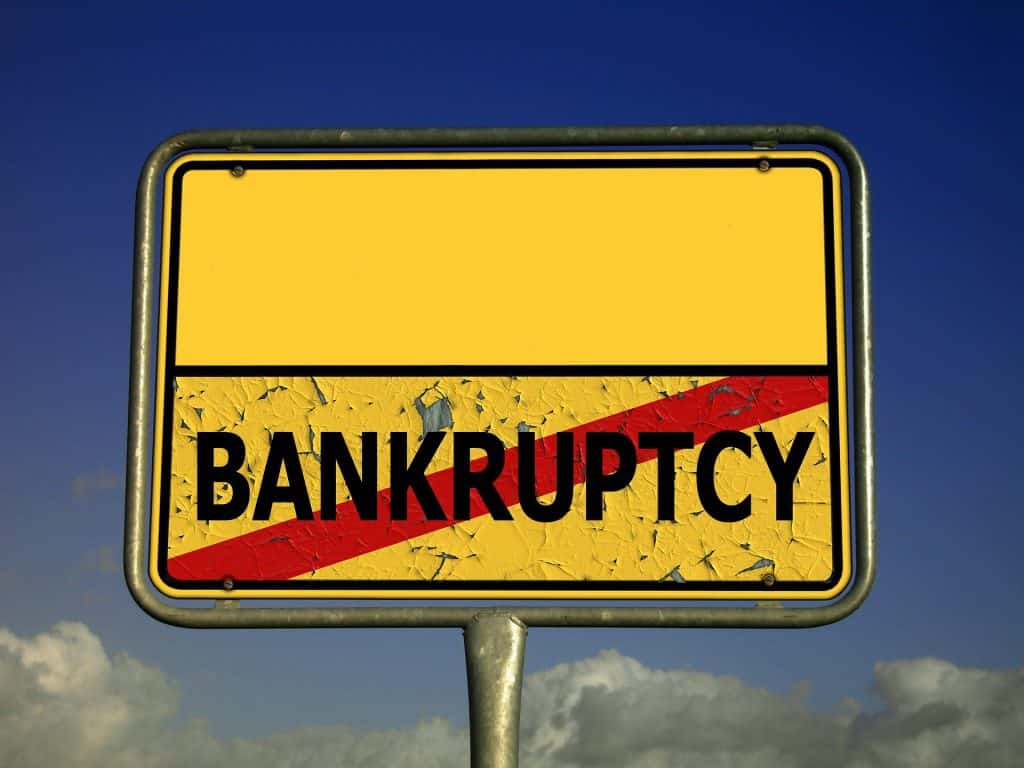When you pour blood, sweat and tears into making your business work, it’s extremely disappointing when things don’t go to plan. When you’re not making enough money, you can quickly start falling behind with suppliers, your commercial rent and more leaving you in an incredibly sticky situation. If you’re facing bankruptcy or just want to avoid it, here’s what you need to know.
Avoiding bankruptcy
First things first, you’ll want to avoid bankruptcy in the first place. You can generally do this by minimising your risk in business as much as possible. Instead of taking out lots of credits and loans and throwing everything you have into your venture, why not start small? You could even begin your business from home to save on costs, and outsource any extra work to third party companies or freelancers in the beginning. This means you don’t need to hire staff, since you’re then responsible for paying them regardless of how much the workload fluctuates. No one wants to be paying a staff member when there’s no work for them to do, not to mention cover recruitment, interviewing and training costs for no reason. If you outsource, you can assign the work on a project by project basis, and the individual or company you pay is responsible for their own tax, working equipment and everything else. As time goes on, if you find that work continues to increase and do well you can look into moving to commercial premises and hiring your own staff members as you know your business is working. Instead of covering all of these costs up front and discovering that things are much slower than you thought. Spend carefully, being sure to use accounting software to track every penny that comes in and out. That way you can easily assess your spend and profits at a glance, and see if there are areas where you need to cut back.
Knowing when to cut your losses
Sometimes, profits can take a bit of a dip. Business can slow down and you could even start losing money, and often this is temporary. Sticking it out means that eventually, things pick back up and return to normal or continue growing. But other times, business might slow down and then stay slow. Perhaps your competitor has rendered you obsolete, or changes in the economy or the world in general means that people either don’t need or can’t afford what you’re selling. In some cases, you might be able to adapt- take internet cafes for example. Once booming businesses, when the internet and computers became widespread in people’s homes they were no longer required. Smart business owners rebranded as student study cafes, or places that those who were on a low income or even homeless could search for jobs or find the resources they needed. Know whether you need to (or have the know how and money) to rebrand, or whether your business has failed. Cutting your losses means you won’t continue losing more money, and running up more debt.
Recouping some costs
Once you’ve made the decision to close your business, you’ll need to recoup as many costs as possible to pay off your creditors. Ending a business in debt is never nice, when you started with the intention of making money it can be soul destroying ending up with less than nothing! But recoup your costs where possible, if you’re owed money from other companies or customers then solicitors such as https://www.laneandcosolicitors.com can help you retrieve the balances. Sell equipment such as computers, printers and machinery. You can even sell things like trademarks, customers lists and more to other businesses. The more money you can raise to pay down what you owe the better. You then might be able set up a payment plan with your creditors to cover the rest, instead of having to declare bankrupt.
Being better prepared next time
After a failed venture, it can leave you feeling like you never want to try anything like this again. But don’t be deterred, most people who do well in business have failures in their past. It can actually prepare you and allow you to do better next time, as you now have experience under your belt and know what to do to avoid making the same mistakes. If you’ve declared bankrupt then you will need to wait until this has been discharged before setting up again. But later down the line, be sure to give it a try again.
This post has been written by an outside source – See Disclosure Policy



